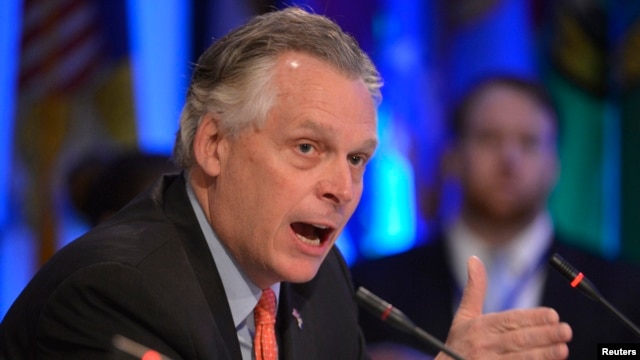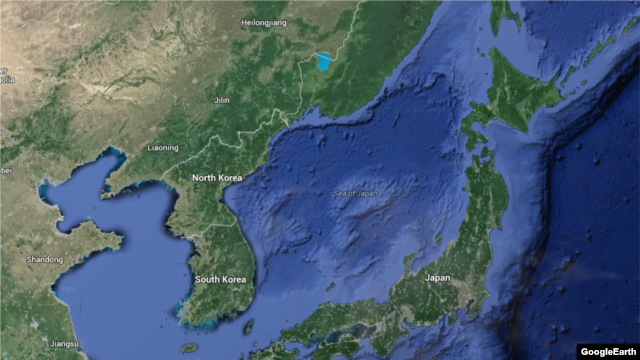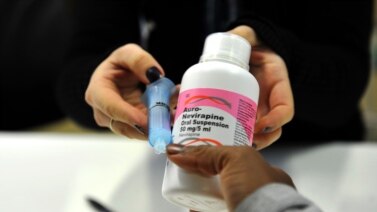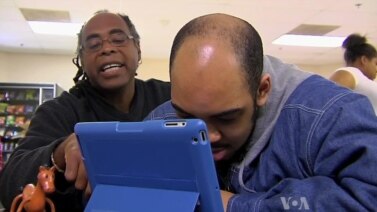Hello, and welcome to As It Is from VOA Learning English!
I’m Christopher Cruise in Washington.
Today on the program, we report on an international dispute that has reached the American state of Virginia.
“From an American perspective, it’s a little bit frustrating that, you know, our democracy becomes the venue for this battle, and it’s probably not the best way to create your social studies textbooks.”
The dispute involves Japan and South Korea. The two countries have long argued about what to call a waterway that separates them. Recently, a group of Korean-Americans asked lawmakers in Virginia to consider the issue. What the state lawmakers decided to do is the subject of our program today on As It Is.
American Schoolbooks Involved in Diplomatic Dispute
Japan and South Korea have been arguing over the name of a sea in Asia that lies between the two countries. That disagreement has reached the legislature in the American state of Virginia. The dispute went all the way to Virginia’s governor.
What Japan calls “The Sea of Japan,” South Korea calls “The East Sea.” A group of Korean-Americans wants schoolbooks in Virginia to show both names. That has caused a diplomatic battle between the two countries.
It all started when a man named Peter Kim asked his son -- who was in 5th grade -- a question. The answer surprised him.
“I asked him ‘Kris, do you know the name, do you know the sea between South Korea and Japan?’ He said ‘Yes, daddy.’ ‘What’s the name of it?’ He says ‘The Sea of Japan.’ And I got really upset. And, and I checked the textbook and there it was: the Sea of Japan only.”
Mr. Kim was born in South Korea. He says everyone there calls it the East Sea.
Some Korean-American activists say the name “Sea of Japan” dates back to a time when Japan ruled Korea. They say the sea should not have the name given to it during a time when the Japanese military illegally occupied and colonized Korea. Japanese forces took control of Korea in 1910 and ruled the peninsula until the end of World War II in 1945.
Peter Kim appealed to the administration of President Barack Obama for help. He sent the Obama administration a document asking that both names be used. The document contained the signatures of more than 100,000 people.
But administration officials said the United States only recognizes the name “Sea of Japan.” Yet the State Department has noted that South Korea wants to use the name East Sea.
Soon, Mr. Kim learned that he should deal with the issue on a state, not a federal, level. So he formed a group called “The Voice of Korean Americans” and began talking to state lawmakers in Virginia. In February, the Virginia legislature approved a bill requiring future school textbooks to use both names.
State lawmaker Timothy Hugo wrote the bill. VOA spoke with him on the day when Virginia’s House of Delegates approved the measure.
“It was a lot of work. I am glad we got it passed today with over 80 votes in the House of Delegates.”
Large majorities in the House of Delegates and Senate voted to approve the bill.
Governor Signs Bill Requiring Textbooks Use "East Sea"
Virginia Governor Terry McAuliffe quietly signed the bill into law at the end of March. So, beginning in July, Virginia will be the first state to require that new textbooks include the name “East Sea” in addition to “Sea of Japan.”

It was not a surprise that the governor approved the measure. Last year he wrote a letter in support of the effort by The Voice of Korean-Americans. The Reuters news agency reports there are 82,000 Korean-Americans in Virginia, but just 19,000 ethnic Japanese.
But the Washington Post reported that the governor and his aides attempted to quietly cancel the bill before Virginia legislators voted on it. They felt approval might affect relations and the state’s strong economic ties with Japan. The newspaper reported that soon after Mr. McAuliffe was elected governor last year, he received a letter from the Japanese embassy in Washington, DC. It said a change of the name of the sea in Virginia textbooks could hurt trade between Japan and the state.
The Associated Press reported that Japan’s ambassador to the United States was personally involved in efforts to try to keep the bill from becoming law. Kenichiro Sasae reportedly met with Governor McAuliffe in January to ask him not to sign the measure. The ambassador noted that Japan is the second-largest foreign investor in Virginia. Japanese-owned companies employ 13,000 workers statewide. But Mr. McAuliffe had promised during his election campaign that he would sign a bill and he kept his promise.
The History of the Dispute
James Schoff works at the Carnegie Endowment for International Peace. He explains how the dispute over the name of the waterway first began.
“In 1929 I think it was, the International Hydrographic Organization went around and said ‘We need to, to officially name all the international bodies of, of water,’ and they chose ‘The Sea of Japan.’ This was at a time that Japan was occupying -- colonizing -- Korea, and so Korea felt that they had no voice.”

Last year, the IHO rejected a demand by South Korea to change the name. The IHO will not meet again until 2017.
James Schoff says the Virginia state legislature is not the right place to settle this kind of dispute.
“From an American perspective, it’s a little bit frustrating that, you know, our democracy becomes the venue for this battle and it’s probably not the best way to create your social studies textbooks.”
Mark Keam is a member of the Virginia House of Delegates. He was a supporter of the bill. He came to the United States from Korea when he was 14 years old.
“What they’re saying is Korean history has been somewhat misplaced or misrepresented in the past; let’s make sure that Virginia corrects that.”
There are also efforts in the American states of Georgia, New York and New Jersey to require textbooks to use the name East Sea. Many Korean-Americans live in those areas.
And that’s our program for today. It was based on a report from VOA’s Mariama Diallo and from stories by the Kyodo News Service, Reuters, The Washington Post and the Associated Press.
You can listen to and read the report anytime at our website: learningenglish.voanews.com.
We really do want to hear what you would like to hear about on a future program. Write to us at:
VOA Learning English
Washington, DC 20237
USA
Or send an e-mail to: LearningEnglish@VOANews.com
You can also go to our website and click “Contact Us.” While you are there, you can read, listen to and download our programs.
You will also find podcasts, captioned videos and lessons to test your English skills.
Follow us on Facebook, LinkedIn, iTunes, Twitter and on our YouTube Channel, all at VOA Learning English.
I’m Christopher Cruise.
Thanks for joining us here on The Voice of America!





